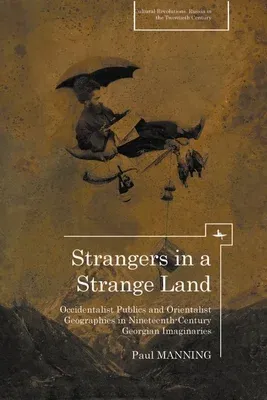Paul Manning
(Author)Strangers in a Strange Land: Occidentalist Publics and Orientalist Geographies in Nineteenth-Century Georgian ImaginariesHardcover, 1 June 2012

Qty
1
Turbo
Ships in 2 - 3 days
In Stock
Free Delivery
Cash on Delivery
15 Days
Free Returns
Secure Checkout

Part of Series
Cultural Revolutions: Russia in the Twentieth Century
Print Length
345 pages
Language
English
Publisher
Academic Studies Press
Date Published
1 Jun 2012
ISBN-10
1936235765
ISBN-13
9781936235766
Description
Product Details
Author:
Book Format:
Hardcover
Country of Origin:
US
Date Published:
1 June 2012
Dimensions:
23.39 x
15.6 x
2.06 cm
ISBN-10:
1936235765
ISBN-13:
9781936235766
Language:
English
Location:
Boston, MA
Pages:
345
Publisher:
Weight:
662.24 gm